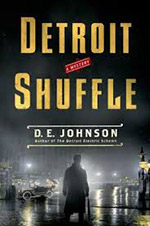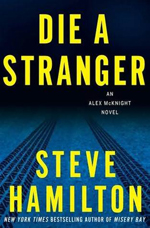Stephen Mack Jones: August Snow
 As I started this book I have to admit I was a tad suspicious – the author is a poet and a playwright, not always the recipe for creating a down and dirty private eye novel. But as I read this novel set in Detroit’s Mexicantown and featuring half African American, half Mexican ex-cop August Snow, I found instead that the book fitted neatly in with work by Loren Estleman and Steve Hamilton, being a refreshingly straightforward, if gritty, private eye novel and making no bones about it.
As I started this book I have to admit I was a tad suspicious – the author is a poet and a playwright, not always the recipe for creating a down and dirty private eye novel. But as I read this novel set in Detroit’s Mexicantown and featuring half African American, half Mexican ex-cop August Snow, I found instead that the book fitted neatly in with work by Loren Estleman and Steve Hamilton, being a refreshingly straightforward, if gritty, private eye novel and making no bones about it.
Like David Housewright’s Minnesota P.I. Mackenzie, who has a ton of money at his disposal, so does August Snow, who won a settlement against the Detroit Police Department and is using the money in his own way to recreate the warm Mexicantown neighborhood he fondly remembers from his childhood. He’s been on the run – more or less – for a year and is back home, settling into his life in Detroit, when he gets a call from an old client, one who helped cause much of the ruckus that got him on the outs with the Detroit cops. Reluctantly, he makes the trek across town to the woman’s Grosse Pointe mansion to see what he can help her with.
 Doug Allyn has long been known as one of the masters of the modern mystery short story—it’s probably harder to find an issue of Ellery Queen’s Mystery Magazine that doesn’t have an Allyn story in it than to find one that does, and it’s a rare year that he’s not nominated for an Edgar award. But he’s also a fine novelist as well, my personal favorite being the the Mitch Mitchell series, which feature a female Michigan based deepwater diver.
Doug Allyn has long been known as one of the masters of the modern mystery short story—it’s probably harder to find an issue of Ellery Queen’s Mystery Magazine that doesn’t have an Allyn story in it than to find one that does, and it’s a rare year that he’s not nominated for an Edgar award. But he’s also a fine novelist as well, my personal favorite being the the Mitch Mitchell series, which feature a female Michigan based deepwater diver.




